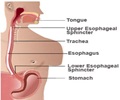US researchers say that drugs commonly used to treat heartburn and prevent ulcers can cause pneumonia in hospitalized patients. Even among the non-hospitalized the tendency has been noticed previously.
Scientists with the Beth Israel Deaconess Medical Center and Harvard Medical School found that patients prescribed drugs like Nexium, Prilosec or Prevacid to prevent stress ulcers had a substantially higher rate of hospital-acquired pneumonia.The findings could affect about 20 million patients a year. Half or more of all hospitalized patients are prescribed proton pump inhibitors such as Nexium, Prilosec or Prevacid to prevent stress ulcers. The study found that these drugs increase the risk of potentially deadly hospital-based pneumonia by 30 percent.
Proton pump inhibitors reduce the production of acid by blocking the enzyme in the wall of the stomach that produces acid. The reduction of acid prevents ulcers and allows any ulcers that exist in the esophagus, stomach, and duodenum to heal.
Researchers suspect that the drugs either suppress the immune system or allow bacteria from the stomach to infect the lungs. According to health care information company IMS Health, $14.5 billion worth of proton pump inhibitors were prescribed last year.
Dr. Shoshana Herzig and several colleagues analyzed records of nearly 64,000 adults admitted to Beth Israel Deaconess Medical Center from 2004 to 2007.
"We found that patients exposed to these medications had a higher rate of hospital-acquired pneumonia," she says.
And, she and her colleagues calculated that the drugs could be causing 180,000 cases of pneumonia in hospitalized patients each year, leading to 33,000 deaths.
Advertisement
The study appears Tuesday in the Journal of the American Medical Association. Herzig suggests that doctors seriously consider whether to prescribe an anti-ulcer drug to only mildly ill hospital patients. She would like to see more studies done on the drugs' use in hospitalized patients.
Advertisement
Avorn told the National People’s Radio that the drugs had only been proven to benefit the sickest patients, and they are being overprescribed.
"The use of these drugs in hospitalized patients is almost a mid-brain reflex on the part of the doctor. The patients in the hospital, they're lying flat — let's give them an acid-suppressing drug," he says.
Avorn says the new study has to be backed up by further research, but he is disappointed that research hasn't been done already.
"This is not a rare drug taken by a couple of hundred people. These questions have been in the air for years, and we still don't know," he says. The problem, he says, is that the companies aren't going to do the study, and the federal government hasn't shown much of an inclination to do so, either.
Representatives of two drug companies that make proton pump inhibitors say they plan to look closely at the study. A spokesperson for AstraZeneca, maker of Nexium, the No. 2-selling prescription drug in the country, says, "After a preliminary review, we see some conflicting evidence in this area."
Source-Medindia
GPL













